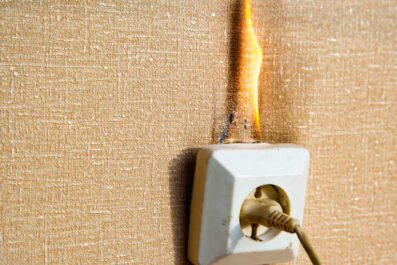How to Deal with Stress and Anxiety while Studying?

A little stress can help students be more motivated and goal-oriented. Nonetheless, constant exposure to stress and anxiety can result in depression, emotional issues, and psychological problems.
Stress can trigger disastrous results if not properly and in a timely manner. Poor concentration, zero academic achievements, critical health issues, and a plethora of other long-term consequences may bother students.
In the modern world, there are too many reasons for stress and anxiety, but when it comes to undergraduates, they are frequently concerned about their academic prosperity.
Some students have a hard time getting prepared for the exams, while others make the maximum effort to cope with all the overwhelming assignments. While every person has a different reason for being anxious, the result is always the same.
Most Common Symptoms of Stress in Students
How do you know stress has a negative impact on your health? Well, there are lots of symptoms that can bother you as you experience anxiety or stress. In the overwhelming majority of instances, students view them as signs of tiredness, but it is not usually so.
Fast reaction and quick maintenance of stress-induced conditions may prevent learners from devastating outcomes. Therefore, learners do not have to ignore the following issues that are becoming more and more common.
- Headache;
- High blood pressure;
- Signs of diabetes;
- Feeling out of breath;
- Fainting;
- Irregular heart rhythm;
- Indigestion;
- Eating disorders;
- Itchy skin;
There are lots of other symptoms, including cognitive disorders, emotional problems, and psychological and physical issues, that will warn you of the aggravating stress and anxiety.
Effective Ways to Cope with Stress at College
The symptoms of stress and anxiety can affect everyday life and make it complicated and overburdening. Additionally, they may trigger a negative impact on the overall health and well-being of college students who need to study for their degrees.
How is it possible to avoid college stress and anxiety, preventing their long-lasting outcomes? Check out some of the simplest and most effective tips that will help you achieve an impeccable study-life balance free of negative impacts.
Familiarize Yourself with Effective Planning Techniques
You are probably tired of listening to the importance of impeccable time management skills that college students need. However, it is truly one of the cornerstones on the way to the elimination of stress, anxiety, depression, and other issues associated with studying.
Being organized, following a schedule, and learning how to prioritize may provide you with much more free time and less stress. Analyze your daily routine and cross out the things that distract you from what really matters. Once you learn to prioritize things, you will increase your chances of submitting everything on time.
Find Time for Relaxation
Studying is a highly energy-consuming process, and proper regime and quality breaks are a must. Find the activity you like the most and use it to relax and unwind your mind. No matter if it is sleeping, playing computer games, or drinking a cup of coffee in the local cafe, it will help you stay more productive and focused while studying.
The time you spend away from studying is an effective release from the devastating source of anxiety and stress. Take a quick break if you feel that you start procrastinating. It will provide your brain and nervous system with the indispensable time to recuperate and renew the necessary strength and motivation.
Build Healthy Habits
The activity of your brain requires fuel that is gained through food. A healthy and nutritious diet is what you need for the achievement of your goals, eliminating stress and anxiety. A well-balanced diet, healthy sleeping habits, regular exercises, and similar activities will keep your body full of energy for the completion of all the assignments.
Missing meals will add to the stress level, as you will also be irritated and feeling unwell. The lack of sufficient sleep will enhance the agitation level and contribute to the growing stress level.
The absence of physical activity will result in poor physical health and an inability to cope with stress. Therefore, ensure you care for these aspects if you are determined to eliminate anxiety and succeed in your college studies.
Practice Self-Care
Studying triggers a positive impact on academic life, but it can result in a devastating influence on the psychological well-being of a learner. Students who are determined to make maximum effort to submit all the assignments with flying colors tend to be much more stressed and anxious.
They create tough schedules free of any personal time, social interactions, and self-care practices. They eventually end up depressed and overwhelmed.
Quality time for yourself is the best way to deal with the problem and succeed with both studying and retaining balanced physical, emotional, and psychological health.
Get Help
While little stress may trigger positive impacts on the studying process, excessive exposure to anxiety and negative emotions will only result in health issues.
Do you find it complicated to cope with a specific assignment? Are you running late with the submission of a challenging college project? There is no need to start panicking, as you can always get qualified assistance.
Browse the web to detect a professional, experienced, and effective paper helper that will guarantee an on-time completion of the necessary projects. Competitive prices, confidentiality guarantee, well-formatted content, and a helpful support team are a few most critical aspects to look for.





